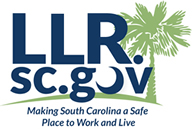Watchdog Report
Hello REALTORS®,
NIMBY: Not In My Backyard.
I am sure you have heard the term. Most of us have been a NIMBY at some point. It is understandable. We like our neighborhood, and we don’t want it to change. Sometimes we become concerned about our property value, although that hasn’t been a legitimate concern recently.
My favorite similar term is BANANA: Build Absolutely Nothing Anywhere Near Anything.
For most people, we don’t have a problem with new development, we just don’t like it near us where it adds to our commute time or replaces the hundred-acre wood we enjoy, but don’t own.
The problem is when NIMBYism produces unproductive new government regulation. It’s also a problem when NIMBYism becomes aggressive. I was recently the target of a group of NIMBYs who posted a BOLO (Be on the Lookout) with a picture of me talking in a public place with a local councilwoman. They also attacked two Realtors volunteer on a local planning commission that approved land use applications they opposed.
The larger concern is the bad public policy that can result from this kind of aggressive political involvement. In fairness, elected officials aren’t robots. They are human, and affected by criticism like everyone else. Next year will mark my thirtieth year as a government affairs professional. Almost all that time has been as an advocate for real estate. I spend a lot of time in local government meetings. I spent three hours Monday evening in an Oconee County Council meeting. The level of discord is growing worse. I think there are three reasons:
- We just lived through the fastest pace of development I have seen in my career.
- Social Media has connected us in multiple ways. Unfortunately, some people will “say” things on social media that they wouldn’t say to someone face-to-face. And that trend is spilling over into government meetings.
- Most local governments broadcast their meetings now. It does make their meetings more accessible. But these broadcasts give people a voice they didn’t have before, and some people are prone to bad behavior.
Most important is how these trends have resulted in new government regulation, particularly on land use. And that regulation is making housing less affordable and accessible in two important ways: 1) it’s harder to build new housing, limiting supply; and 2) it’s more expensive to building new housing.
These are three examples of recently approved ordinances:
- Pickens County Council enacted a moratorium on new subdivisions 50 lots are larger. That moratorium has been in place for seven months so far, and it appears that they will extend it to 11 months. That means there will be 500 fewer new homes available for home buyers in the future.
- Clemson City Council increased their impact fee by roughly 100 percent to $9,700 per new home (apartments are about 2/3 of that amount). That means new homes in Clemson will cost $5,000 more soon.
- Easley City Council decreased housing density in their zoning ordinance. In some zoning districts, they reduced density by half. Land won’t be cheaper, so housing will be more expensive in Easley soon.
Three governmental actions taken in response to NIMBYism that contribute to our housing affordability crisis and other problems like sprawl.
There is a role Realtors can play. More than a dozen cities in the Western Upstate will hold elections on November 7. Make sure you are registered to vote—and VOTE. Over the coming weeks, a team of Realtors will review a questionnaire we have sent to the candidates. We may interview some of them as well. In late October, we will send you a Voter Guide to help you decide how you will vote. But the most important thing you can do is VOTE.
If you would like to meet your elected officials and some of the candidates, plan to attend the RPAC Oyster Roast on October 11. Click here for more information on the RPAC Oyster Roast.
Michael Dey, Director of Government Affairs



